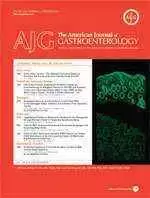Celiac.com 01/25/20010 - Women with celiac disease face greater risks for adverse pregnancy outcomes. A team of researchers recently set out to examine the effects of treated and untreated maternal celiac disease on infant birthweight and preterm birth. Among their findings are that expectant mothers with celiac disease face a higher risk of underweight and early-term birth than those without celiac disease.
The research team included A.S. Khashan, T.B. Henriksen, P.B. Mortensen, R. McNamee, F.P. McCarthy, M.G. Pedersen and L.C. Kenny. They are affiliated variously with the Anu Research Centre of the Department of Obstetrics and Gynecology at the University College Cork at Cork University Maternity Hospital in Ireland, the Perinatal Epidemiology Research Unit in the Department of Paediatrics at Aarhus University Hospital, the National Centre for Register-based Research at the University of Aarhus, Denmark, and the Biostatistics Group, University of Manchester, Manchester, UK.
Celiac.com Sponsor (A12):
For their data, they used a population-based cohort study of all live births in Denmark between 1 January 1979 and 31 December 2004. During that period, 836,241 mothers gave birth to a total of 1,504,342 babies. Mothers with diagnosed celiac disease gave birth to 1105 of those babies, while 346 were born to women with undiagnosed celiac disease.
The team considered mothers with diagnosed celiac disease to be following a gluten free diet, and those with undiagnosed celiac disease to be on a gluten-inclusive diet. The team measured outcomes based on birthweight, small for gestational age (SGA: birthweight <10th centile), very small for gestational age (VSGA: birthweight <5th centile) and preterm birth. They then compared the results for the treated and untreated celiac disease mothers with those of a celiac-free reference group.
The research team found that mothers with untreated celiac disease gave birth to smaller babies [difference = –98 g (95% CI: –130, –67)], with a higher risk of SGA [OR = 1.31 (95% CI: 1.06, 1.63)], VSGA [OR = 1.54 (95% CI: 1.17, 2.03)] and early birth [OR = 1.33 (95% CI: 1.02, 1.72)] compared with women with no celiac disease.
The good news is that mothers with treated celiac disease showed no increased risk of reduced mean birthweight, or of delivering SGA and VSGA infants or preterm birth compared with mothers with no celiac disease.
From the results, the research team concluded that untreated maternal celiac disease increases the risk of low birthweight, SGA and VSGA, and preterm birth.
Diagnosis and treatment of maternal celiac disease with a gluten-free diet seems to return the birthweight and preterm birth rate to one comparable to women without celiac disease.
This study drives home the importance of expectant mothers with celiac disease maintaining a gluten-free diet to promote a healthy delivery.
Source:Open Original Shared Link



.gif.acdac5a2256e7cdf7f7427067db6b2ea.gif)




Recommended Comments